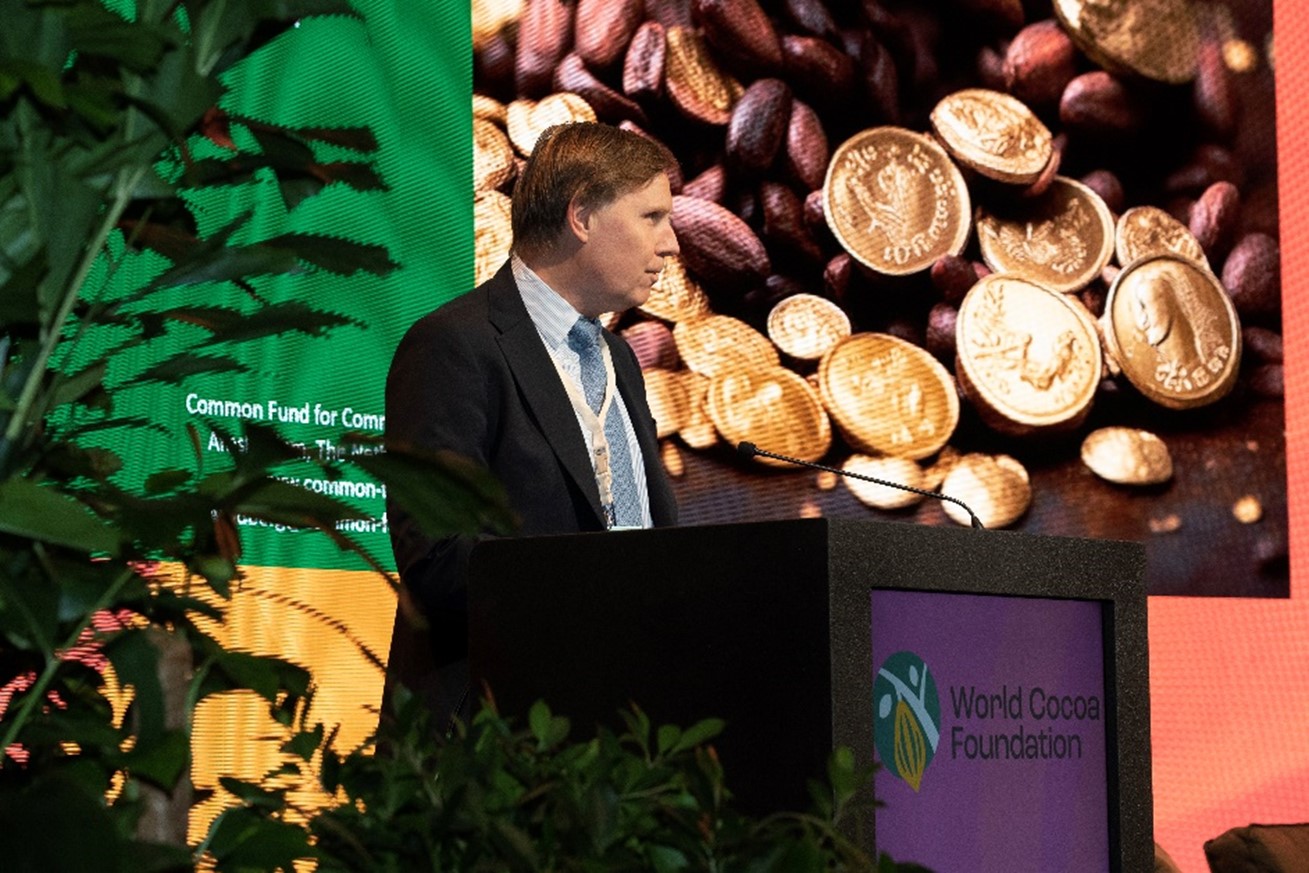Navigating Commodity Market Volatility: Impact Investing for Sustainable Value Chains
From the dawn of trade to the intricacies of modern financial systems, commodities have been the bedrock of economic exchange. As the world is now confronting the likelihood of significant shifts in the global financial system, it's time to consider what it might mean for commodities and, especially, for the people at the base of commodity value chains. The financialization of commodity sector, and the possible emergence of commodity linked currencies are just some of the issues to be considered.
Our Chief Strategy Officer, Andrey Kuleshov recently spoke at the @World Cocoa Foundation forum held in Amsterdam, Netherlands. Cocoa is one of the commodities where rural poverty remains a principal matter of concern. Many cocoa producers reside in locations that are high in poverty with inadequate access to social services, infrastructure, and off-farm employment options. WCO’s 2030’stated ambition is to play a leading role in significantly increasing the net household income of cocoa farmers.
It has been a concern already since the days of the great financial crisis of 2008 that the global financial system teeters on the edge of instability. While it may remain dynamically stable for indefinite periods of time the underlying fragility is inescapable. Traditionally, commodities have served as an anchor and a reliable measure of value. Their divisibility and inherent worth have made them ideal candidates for money, shaping the very foundation of our monetary systems. Yet, the constraints of commodity-based money have been known for a long time, and fiat money proved to be the essential tool for economic expansion, while also enabling a growing debt load. The resulting disconnect between financial and real assets in the world where commodities are treated as a financial instrument has to be a matter of concern.
While most evidence seems to indicate that commodity price volatility originates in the real-world demand and supply issues, there is also credible evidence that financialization of commodities using debt instruments amplifies the volatility well beyond levels warranted by commodity value chain fundamentals. While this excess volatility may be quite normal for the financial markets, there is also evidence of serious destructive effects it may have on the poorest participants of the global commodity value chains. Excess volatility in commodity markets poses a significant obstacle to the creation of sustainable value chains, particularly for smallholder farmers in developing countries. The spectre of financialization looms large, threatening livelihoods and exacerbating the cycle of poverty.
In fact, there has been clear correlation between commodity market volatility and incidents of civil strife in impoverished nations. The ebb and flow of commodity prices often mirrors the unrest and instability that plague these regions, highlighting the urgent need for financing that does not transfer the risks and volatility from financial markets to the poorest people who cannot bear it.
The CFC looks at practical solutions to mitigate the impact of volatility and foster resilience within commodity value chains. Impact investing emerges as a beacon of hope in these turbulent times. By channelling resources into projects that prioritize stability and sustainability, impact investors can play a pivotal role in reshaping the trajectory of commodity markets.
According to Mr. Kuleshov, "It is in the interest of everyone in commodity value chains to be prepared to live in choppy markets, invest in resilience, build in financial safety cushions, plan for emergencies, diversify and transform for greater sustainability. This is what the CFC invests in This is why we are building an Agricultural Transformation Fund (ACT Fund) - a vehicle for private impact investors to access the weakest links in the global commodity value chains."
The Agricultural Transformation Fund (ACT Fund), spearheaded by the CFC, stands as a testament to this ethos, offering a lifeline to smallholder farmers and marginalized communities around the world.
As we confront the realities of commodity market volatility, let us not succumb to despair. Instead, let us harness the power of impact investing to forge a path towards a more equitable and resilient future. Together, we can build value chains that withstand the test of time, empowering communities, and safeguarding prosperity for generations to come.

